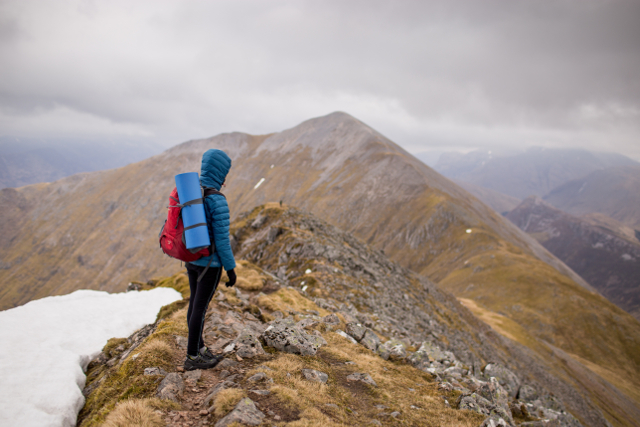
Photo by Danka & Peter, Unsplash
If you spend time outdoors, then you realize that majestic views come with discomforts. Rain, cold, heat, sunburn, blisters, scratches, scrapes, bruises and bumps. They’re all part of the outdoor experience.
And you also understand that some people deal with these hardships better than others. Some are “tough.” They withstand adverse conditions and endure periods of hardship or difficulty. While others whine and complain. They make mountains of molehills and collapse at the first sign of difficulty.
You can be tough
I’ve heard media outlets lament that “toughness” belongs to a better vanished time. That modern life has diminished our spirit, eroded our ability to ride-out difficult times.
I disagree. Being “tough” is a skill. It’s a mindset that can you can learn, practice, and cultivate. I want to share some thoughts with you so you can increase your toughness, both in life and in the outdoors.
What does it mean to be tough?
Let’s start by defining what it means to be tough. In the section above I mention withstanding adverse conditions. I also discuss enduring periods of hardship. To this let’s add the ability to tolerate discomfort and perform well. We see athletes do all these things daily. Maybe that’s why they’re idolized.

Being strong is not the same as being tough.(Photo courtesy of CDC)
Two items not mentioned in our definition of toughness: physical strength and aggressive behavior.
Men in particular often confuse toughness with physical strength. This is a common mistake! Some of the toughest people I know look frail to the eye. But they can hike for miles and spend days at a time living in the backcountry. Being tough is not the same as being strong. On the trail, I have seen waiflike women push themselves up steep switchbacks while muscle-bound men crumple to the ground in despair. If you confuse toughness with strength you can overestimate others and underestimate yourself!
Being tough is also different from being a “tough guy.” There were neighborhoods near my childhood home where being a “tough guy” was prized. How did one become a tough guy? Through fistfights and acting aggressively toward others. This is not what I mean when I describe someone as tough.
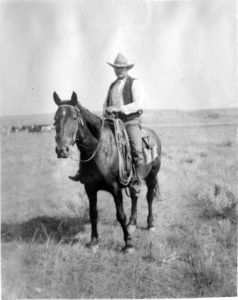
The cowboy is America’s archetype for being rugged outdoors.
(Photo courtesy of NPS)
It’s not surprising that there’s confusion about what it means to be tough. We’ve been sold a bill of goods by mass media. Ruggedness is a stereotype of the outdoors. Yet take a look at the cowboy, America’s iconic symbol of toughness. Over the years the indomitable cowboy has been used to sell us everything from cigarettes to whisky, shaving products to allergy medication(!). And in doing so we’ve lost touch with the very qualities that make the cowboy so idealized.
Our definition of “tough” is important. I want you to realize that toughness can be learned. That you too can be tough! Physical strength is not required. Really, “tough” is a mindset you can learn, cultivate, and practice.
Why you should be tough
There’s no doubt that being tough can help you enjoy your outdoor experience. But a resilient attitude can help you throughout life. Pain, illness, anxiety, fear, stress, and hopelessness are all discomforts to be overcome. And learning to be tough will help you navigate these obstacles.
Here are two examples where being tough would have made a miserable outdoor experience more enjoyable.
Cold over Fun
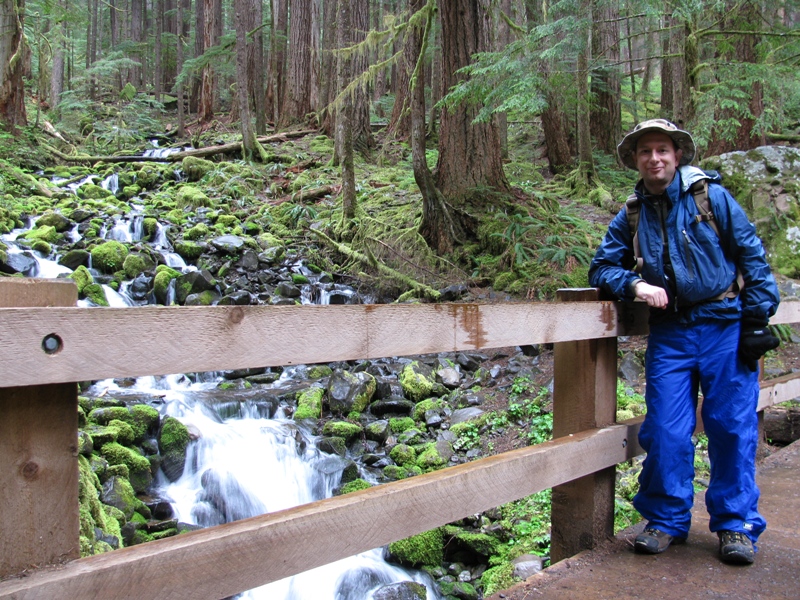
Don’t let uncomfortable weather deter you from enjoying the woods. (Olympic National Park)
My first backpack trip was also my first snow camp. We were in the Sierra Nevada mountains near the town of Bishop, California.
We arrived late the night before. Snow flurries hounded us as we struggled to erect the tent. None of us had practiced setting up our rented tent (rookie mistake!). My flashlight was buried at the bottom of my pack (rookie mistake!). And I needed to unpack my clothing in the storm to find it. When we finally settled in for the night I was a chilled, bedraggled mess.
My friends told me to take my water bottle into my sleeping bag so my water would not freeze in the night. But what about my wet clothes? I didn’t want them to freeze, so I packed them in my sleeping bag as well. My hiking boots were soaked. No frozen boots for me! Into my sleeping bag they went. And my backpacking stove? You guessed it!
I drifted off into a restless sleep with all my wet gear surrounding me in my sleeping bag!
Today I find it hilarious. And I hope you do, too. But it wasn’t so funny when I awoke the next morning. I was chilled and tired and already suffering a mild head cold.
I removed the wet things from my sleeping bag and slowly warmed up. But then I retreated into my sleeping bag instead of trying to get warm. My friends were outside sipping hot drinks and preparing to build an igloo while I spent hours in my sleeping bag wallowing in self-pity. I missed all the fun activities I went on the trip to experience!
Years later I regret not emerging from my tent. My life was not in danger. I was just unexpectedly and uncomfortably cold.
The Mosquitos
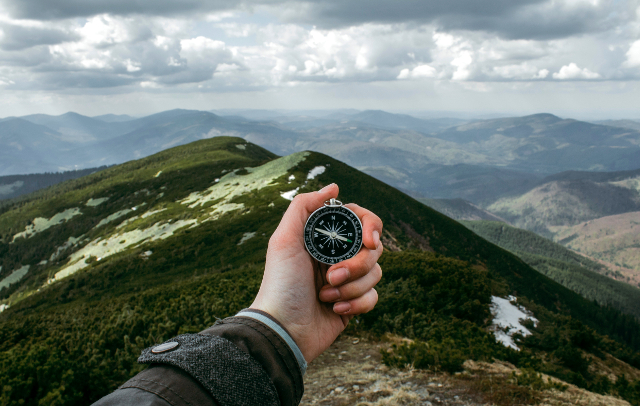
Being tough means working through problems that arise on the trail. Not all discomfort is physical. Persevering through stress and fear is part of being tough.
Photo by Anastasia Petrova, Unsplash
I was teaching a day-long wilderness survival class. We started early in the morning under the canopy of redwood forest.
During orientation, our group was harried by some of the local mosquitos. There were no more than a handful buzzing around the group. Most of the students absentmindedly swiped at the insects whenever they buzzed too close.
My students included a family of four – two middle-aged parents with two young children. The wife became freaked-out by the mosquitos. She was wearing insect repellent and neither her nor her family had been bitten. We were in a part of the country free from the insect-borne diseases that plague other areas.
But none of this mattered. It was the thought that she could be bitten that ended her day at 10:00 AM. She did not have a phobia. And she wasn’t worried about disease. She became distractedly obsessed with the thought that she might be bitten by a mosquito. And she was unable to function.
I said all the right things and helped the family pack and depart. I could tell that the husband and children regretted having to leave so early. But there was nothing to be done.
So how can you cultivate toughness? Here are six tips.
Six tips to make you tough
1. Concentrate on what you need to do (what is the next step?)
Focus on what you need to do next, ignoring distractions. You will become engrossed in the task and forget the discomforts that plague you. And when you string a group of these steps together, you will discover you have achieved your goal despite discomfort.
2. Visualize the end-goal
When you find yourself in an unpleasant situation, understand that it will end and you will come out the other side. Visualize your end-goal. Remind yourself that it will be over soon – it’s not forever. Remember, nobody practices tennis because they like practicing tennis. They want to win the U.S. Open!
3. Distract yourself
Usually I advocate opening your senses and living in the moment. But when suffering discomfort, it is helpful to distract yourself with other thoughts. Whenever I struggle with an uphill trail, I find myself humming my favorite television theme songs. Their energetic tempos propel me uphill. Other times I replay conversations or old sports events in my mind. The point is to redirect your thoughts so you don’t dwell on your temporary discomfort.
4. Practice realistic optimism
Compartmentalize negative feelings. Force yourself to remain positive. Sounds easy, doesn’t it? We have a choice about how we think about a situation. And an optimistic view translates into the probability you’ll triumph over the moment.
When I encounter a tough situation, I often force myself to smile. I think about a successful resolution (item 2, above) and work backwards, step-by-step, to my current position. Then it’s about performing each step (item 1, above). I know that if I perform the steps, I will succeed in ending the unpleasant conditions.
5. Engineer small discomforts
You can practice being tough. Keeping yourself safe, you can choose to travel over difficult terrain, spend time in cold or hot conditions, or push yourself an extra mile or two. Don’t hurt yourself. But “stretch your envelope.” Experience minor discomforts so you know you can beat them if you are caught in an unexpected situation.
6. Engineer tests of will power
Strength of will plays into toughness. Can you deny yourself instant gratification? Can you go a little longer before stopping to eat or drink? Get in the habit of exercising your will. Like a muscle, it will grow strong.
There’s Tough and There’s Stupid
Know the difference between tough and stupid. Tough is tolerating minor discomforts and performing well. Stupid is ignoring warnings and putting yourself in danger.
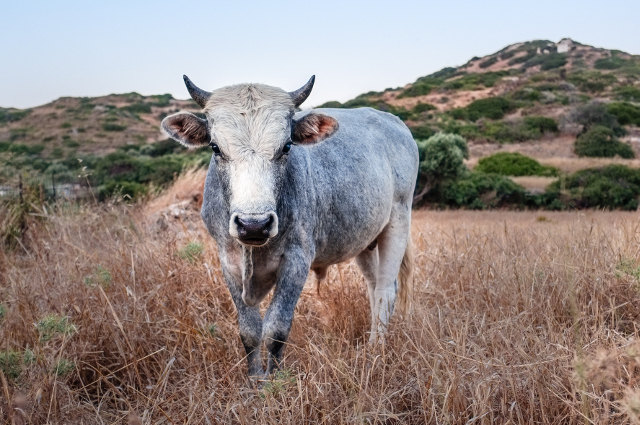
Determination is part of being tough. But don’t be bull-headed and put yourself in danger.
Photo by Samuel Zeller, Unsplash
A few weeks ago, I went hiking with a friend in southern California. It was June and we were in arid conditions, at around 6,000’ elevation. It was 92 degrees in the shade – and there was no shade!
We arrived late at the trailhead and hiked in the noonday sun. After three miles climbing toward the summit I knew we had a problem. I was more than half way through my water and I was still heating up. I could not control my body temperature and I recognized the danger.
My friend spends most of his time in the office. He doesn’t hike often. I could hear him laboring behind me. I decided we should turned back. We were only a quarter way through our hike and we were cooking under the noonday sun. The thin air slowed our progress and our water was vanishing fast.
To my surprise, my friend rejected the idea. He wanted to press on, despite the discomforts. His “can do” attitude caused me to hesitate. I felt I was the one in better physical condition, but he was the one wanting to press on. I was embarrassed at myself.
We continued onward and things got worse. We began a steep climb up rocky slopes. And now there was the risk that a stumble could turn serious.
To make a long story shorter. We did decide to turn back. By the time we reached the trailhead we were both parched and overheated. I’m convinced that if we continued on we would have exhausted our water and become hyperthermic.
This was a case where “being tough” would have put us in danger. Know the difference between discomfort and danger. Don’t be stupid when you think you’re being tough.
Conclusion
You can learn to be “tough.” If you cultivate a willingness to push yourself through discomfort, it can improve your outdoor experience. It can also translate to other aspects of life. Know the difference between discomfort and danger. And don’t be stupid when you think you’re being tough.
Do you have examples when you were tough? When you were not tough? Were you ever stupid when you thought you were being tough?
Let me know in the comments below.
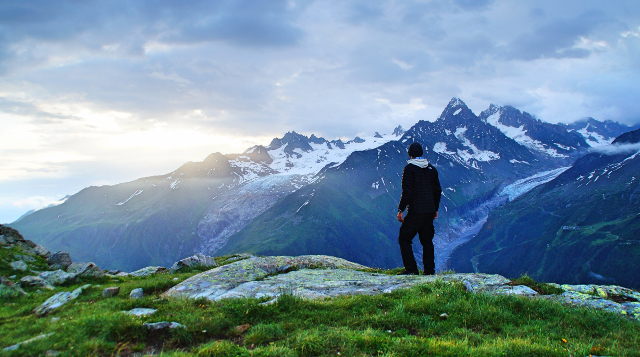
Perseverance will get you to the top of the mountain. Photo by Nicolas Cool, Unsplash
Related Articles on NatureOutside
You’re no Ray Mears, and Here’s Why!
Change Your Trail to Change Your Attitude
16 Tips to Stay Cool on the Trail
For fun facts and useful tips, join the free Bushcraft Newsletter.



I think you often need experience to tread the stupid/tough line properly. I am also sure that those mosquitoes would had also done me in. 🙂
I agree, Polly, it can be hard to tell without experience.
I hear you about the mosquitoes. There’s a famous proverb, “If you think you are too small to make a difference, try sleeping in a room with a mosquito.” 🙂
Many years ago, six of us went to climb a mountain, joining the PCT near an Oregon mountain. Fog set in, and I turned around, unwilling to be bullied by false pride in someone without experience. After staying alone and not knowing what caused the delay, I learned two of the others had gone head over heels down a rocky slope. It is better to learn the limits of tough and be able to recognize the difference between tough and stupid, in both self and others..
Thanks for sharing your story, Nola. Knowing one’s limits, and knowing when to push and when to back off, is priceless wisdom. It sounds like you exercised sound judgment. I’m glad you came through unharmed!